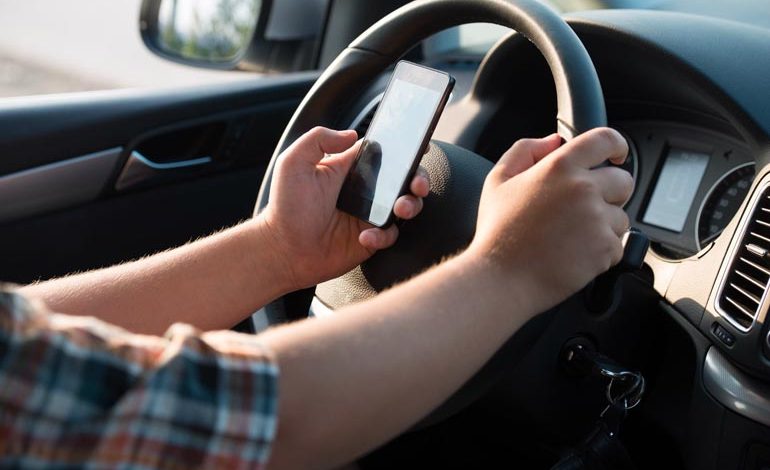Police are warning there will be no hiding place next week for any motorists across County Durham tempted to use their mobile phones while driving.
Officers from the Cleveland and Durham Specialist Operations Unit (CDSOU) are supporting national activity co-ordinated by the NPCC (National Police Chiefs Council).
In 2016 across the force region, there were 720 offences of drivers using their mobile phones and a further 67 found to be not in proper control of their vehicle.
Examples of not being in control can include eating or drinking, trying to set music on mp3 players, or serious distractions such as an argument with a passenger or being distracted by children or animals who are not suitably restrained.
At present the offence carries a £100 fine and three penalty points. If the case goes to court the offender can also be disqualified from driving or riding, and get a maximum fine of £1,000. Drivers of buses or goods vehicles could get a maximum fine of £2,500.
However, in March the penalties will increase to six points and a £200 fine. This could have a huge effect on new drivers in their probationary period, as their licence will be revoked if they receive six penalty points.
Research has found that being distracted by a phone while driving, regardless of whether it is being used to make calls, messages or going online can make a driver up to 25 times more likely to be involved in a collision.
Insp Harry Simpson from the CDSOU said any drivers taking the risk of using a phone, or being otherwise seriously distracted while at the wheel could expect no second chances.
“We will have a number of officers dedicated to this campaign across the week, using unmarked as well as marked police cars,” he said.
“Over the years there have been plenty of educational campaigns so no-one can claim to be unaware this is against the law and also incredibly dangerous.
“There are clearly some people who feel the law doesn’t apply to them. But over the next week they will discover our officers are making this offence a priority and that we have a zero-tolerance approach.”
The national campaign is also highlighting the dangers of pedestrians and cyclists being distracted while using the roads.
Pedestrians tend to:
• walk slower
• are less likely to notice other objects in their environment
• Select smaller crossing gaps in traffic
• Are less likely to look at traffic before starting to cross
• Are less likely to wait for traffic to stop
• Are less likely to look at traffic while crossing
• Are more likely to walk out in front of an approaching car
Cyclists who are distracted with a mobile phone or MP3 player will:
• Be more likely to veer to the side or swerve
• detect fewer signs planted along the bike route.
• be less likely to look at traffic while entering the road.
• select smaller crossing gaps in traffic








